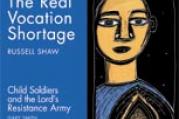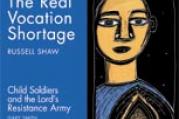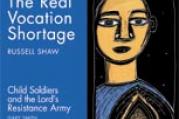Click here if you don’t see subscription options





Much Sadder Sentence
My friend Sam almost died last week. That was the first sentence of my article Growing Old in Prison, published in America last Nov. 10. Today I must write a new, much sadder sentence: my friend Sam died yesterday afternoon.
Five days ago, during a spell of unusually cold weather, Sam began to feel congested and weak, andquite sensibly for a 63-year-oldhe reported to the prison infirmary. In my earlier article I compared penitentiary medical care to penitentiary food: the operative motto is as little as possible, as cheap as possible. True to this guiding principle, the nurses told Sam that he had the flu and that he should simply ride it out in his cell. No one thought it strange that he had to be taken back to the cellblock in a wheelchair.
The following day Sam was too weak to report to pill call or to walk to the chow hall. Thanks to a kindhearted fellow inmate, however, he was at least brought a tray with food. The guards on duty told this prisoner, Wilbur T., to keep an eye on Sam, in lieu of proper medical care.
The next morning, a Sunday, he had trouble breathing, so two other inmatesSylvester F. and Meredith S.persuaded the watch commander, Lieutenant M., to move Sam to the infirmary. Unexpectedly, this watch commander followed up on Sam’s progress so resolutely that the nurses called an ambulance and had him moved to the prison ward at a major hospital in Richmond, Va. I heard that at this stage the official diagnosis was still influenza, but I do not know this for certain.
Two days later, Sam passed away because of kidney failure. Because he, unlike most prisoners, still had contact with his family, civilian hospital staff were able to call his two daughters to his bedside at the end. His son is a military officer on active duty. Sam is survived by his children and a large passel of beautiful grandchildren.
Many of his fellow convicts also mourn his loss. On our side of the razor-wire fence, there are few men like him: generous, patient, funny, intelligent and stoical. Sam was always ready to give a roll-up cigarette or two to the crazies from this penitentiary’s mental health unit, and he taught other inmates how to read and write in a remedial literacy class organized by two Presbyterian teachers. Certainly his line-by-line edits and detailed critique of the manuscript of my first book helped significantly to make it publishable.
Even in Sam’s last months, he always maintained his sense of humor, arguing fiercely at the breakfast table that Saddam’s weapons of mass destruction would eventually be found, even if the United States had to invade Syria to track them down. But those days were very difficult for him. After the two mini-strokes I described in Growing Old in Prison, Sam experienced another mini-stroke, as a result of which he broke his wrist. No doubt those episodes contributed to the kidney failure that eventually took his life.
And the usual stresses of prison life surely played a role in Sam’s death as well. At the end of 2003, the Department of Corrections ordered all inmates to cut their visiting lists so drastically that he had to choose which of his many relatives would still be allowed to visit him in the future. What a decision to make: do I give up the right to see my grandchildren by my eldest daughter? Or do I give up the right to see my youngest grandson, by my son? And how do I explain all this to my family?
Supposedly, Sam told another prisoner three days before his passing that he was ready and prepared to die. Perhaps that is true, perhaps not. Many of us have spent so much time behind bars that we envy Sam his final release. At least he got out; we are still here.
Of course, all of us earned our trips to the penitentiary even Sam, even me. Sam, you may recall from my first article, shot an intruder twice inside his townhouse, a death that might have been prevented by firing a warning into the ceiling. So he deserved to go to jail; but did he deserve to lose his own life in a hospital’s prison ward?
Jens Soering





